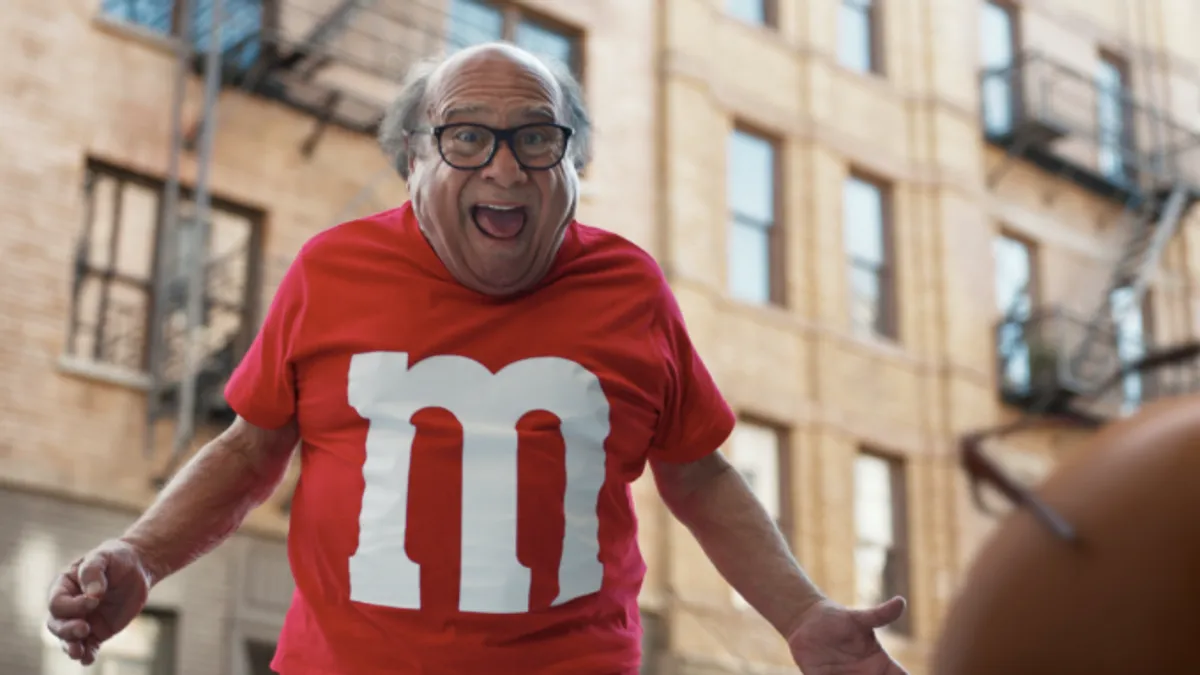Dive Brief:
- Freshpet’s “The Story of Princess” was ranked the best storytelling ad for 2018, according to an Ace Metrix analysis of more than 8,300 video ads and 3 million viewer comments measuring the strongest impact across a number of emotions, including narrative, heartfelt, funny and "left field." Gillette’s “Proud Dad :60” placed second in storytelling, followed by PetCo's “Saving Up :30,” Fedex's “Tortoise & The Hare,” Zillow's “Time Capsule” and Teleflora's “Teleflora Table.” Only 12.49% of ads have a quantifiable storytelling emotional impact.
- Huggies’ “Father’s Day Hugs” was the most heartfelt ad, followed by Hallmark's “Her Day,” Verizon's “Military Appreciation :60,” Macy’s “Always Present,” Teleflora's “Teleflora Table,” Budweiser's “Our Heroes” and Verizon “Answering the Call.” Just 12% of ads were heartfelt.
- Twenty-five percent of ads were considered funny, with Farmers Insurance's “Hall of Claims: Parking Splat” ranked the funniest. M&M’s “Human,” Adam & Eve's “Sympathy for the Grumps,” NFL’s “Touchdown Celebration,” King’s Hawaiian's “Dye Pack,” Jack Link’s “Glamping :15” and 1-800-Contacts' “Toothpaste :15” made the list of top funniest ads. The Left Field emotional ranking, which encompasses ads that seem outside the “realm of possibility,” was cited in 17.2% of the ads. Comcast Xfinity’s “Popcorn” was the most unusual ad, followed by Skittles' “Glowing,” Skittles' “Taste the Rainbow,” Trolli's “Wake Up Your Mouth” and POM Wonderful's “Dolphin.”
Dive Insight:
Creating an emotional connection continues to be a winning marketing tactic for brands seeking to build relationships and brand loyalty, and ultimately drive purchases. Emotional response has a stronger influence on purchase intent than an ad’s content by a factor of 3:1, according to the Ace Metrix report. With 2018’s slate of ads ranking in the top percentile, marketers seem to be taking note and ramping up the emotional factor. However, the number of ads eliciting emotional narrative and heartfelt response remains low at 12%.
Strong storytelling connects most with consumers, especially when they are inspiring, wholesome and nostalgic. Freshpet’s ad, ranked as the best storytelling ad, encompassed all of these sentiments. The ad featured a three-legged dog overcoming the odds against it. Gillette’s ad resonated with millennial and Gen X men by focusing on the emotional bond between the NFL’s Solomon Thomas and his supportive father.
The universal themes of the ads considered heartfelt, including heartwarming, joyous and bittersweet, are relatable to consumers. Huggies and Verizon focused on Father’s Day, while Hallmark focused on Mother’s Day and Macy’s on mother-daughter relationships were considered likable and relevant. Budweiser’s “Our Heroes” focuses on heroism and human connection. While certain levels of sentimentality create an emotional connection, marketers can take it too far. Millennials expect brands to stand for something beyond sentimentality, and may not be as receptive to ads that are too sentimental. “Smart heart ads,” or those that communicate a brand’s values or social good, performed best with millennials, according to a separate Ace Metrix analysis.
Marketers seem to be doing best at creating emotional connections through humor, as a quarter of the ads were considered funny. Ads that are funny also tend to be more memorable by consumers. Farmers Insurance’s long-running “Hall of Claims” campaign is entertaining and memorable to consumers. The comical appearance of Sasquatch in the Jack Link ad was listed as the Single Best Thing by 24% of viewers and drove a high watchability score for the ad.
Along with humor, more marketers are embracing unconventional themes to create memorable connections with consumers. But, getting it right can be a fine line. POM Wonderful’s “Dolphin,” which featured a man living with a dolphin impaled through his chest, evoked mixed emotions, with some viewers finding the quirky humor likable, but others said the ad insulted their intelligence and felt that the sex reference went too far. The Left Field ads evoked stronger negative reactions, like gross, irksome and mean, and saw poor performance across other categories measured by Ace Metrix.














